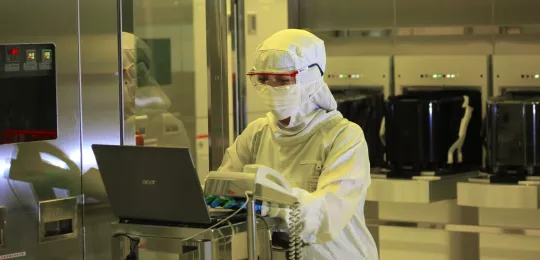August 18, 2020

This on-demand course, originally recorded on August 18, 2020, describes how machine learning and AI-based approaches to research, development, and production brings advantages to cleanroom processes. AI-based identification of time-varying equipment performance, and the effects of the previous recipe used on the outcome of the current desired methods, are just some of the ways AI can be used to reduce the process variability.
Time
10:00 am - 12:00 pm
Location
On-Demand,
United States

This course, originally recorded on August 18, 2020, describes how machine learning and AI-based approaches to research, development, and production brings advantages to cleanroom processes. AI-based identification of time-varying equipment performance, and the effects of the previous recipe used on the outcome of the current desired methods, are just some of the ways AI can be used to reduce the process variability.
Cornell University has applied AI approaches to optimize lithography and etching processes involved in the development of an RF wake-up NEMS (Nano ElectroMechnical system) switch that needs a well-controlled gap between a moving shuttle and a contact. This presentation highlights that, as well as a decision tree based AI model for predicting lithography outcomes.
The AI work used as the basis for the course has been applied to plasma etching and the combined prediction of lithography and thin-film etching, using CD-SEM imagery for feature extraction and modeling process variables. Additional approaches to train process-modeling CAD tools to result in better process development experience have been developed.
The course provides a useful basis upon which to formulate AI strategies for all thin film manufacturing sites.
Featured Speakers






Registration Includes:
- Access to the recorded session for use by the same person, multiple times
- Additional attendees must register separately to view
Member Price: $25
Non-Member Price: $49
Non-Member Price for Government, Military, and Academia Non-Members: $35
To receive this price, contact Michelle Fabiano at mfabiano@semi.org for discount code. Must have a valid .gov, .mil or .edu email address
Students: $0
To receive this price, contact Gity Samadi at gsamadi@semi.org for discount code. Must have a valid student ID card.
